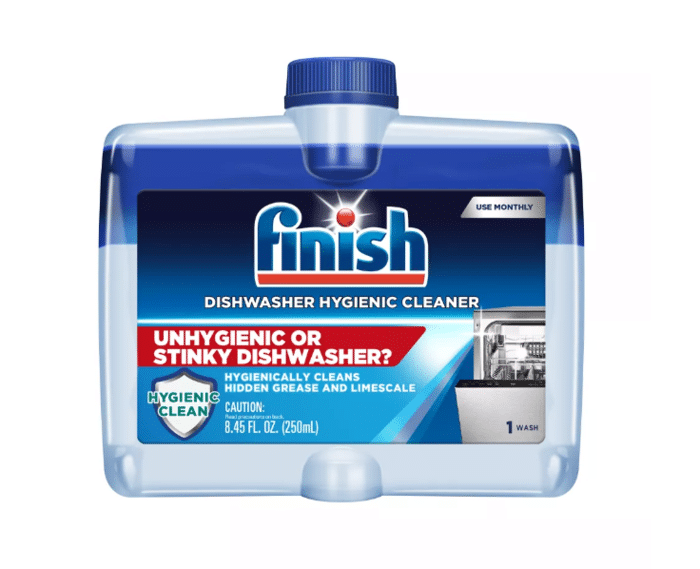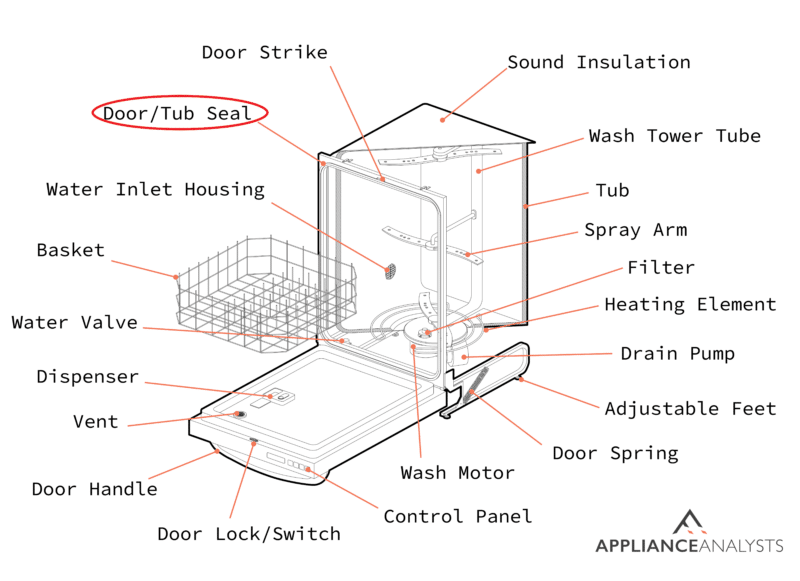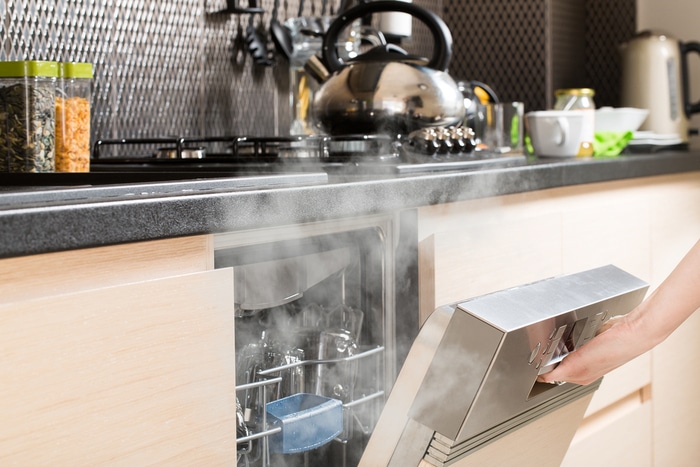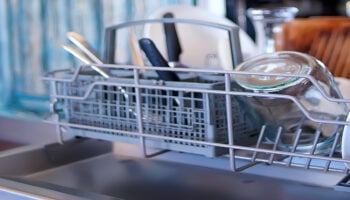We've independently reviewed this article to make sure it's as accurate as we can make it.
To find out more about our article creation and review process, check out our editorial guidelines.
Does your dishwasher smell like sewage?
Don’t worry, you’re not alone! There’s nothing more frustrating than opening your dishwasher expecting sparkling clean dishes, only to be greeted by an unpleasant odor.
The good news is that you’ve come to the right place to get this issue fixed.
If your dishwasher smells like sewage, you’ll need to use a tablet cleaner and a sanitizer and clean your filter and garbage disposal. It’s also important to leave the door open after every cycle and check the drainage system.
Keep reading to get rid of the sewage odor!
Why trust us? This article was written in collaboration with James Blackford, our appliance repair expert. James has over 16 years of experience as an appliance technician, works as a Master Technician for SquareTrade, and runs his own appliance repair company.
How To Stop Your Dishwasher From Smelling Like Sewage: 4 Steps
Sometimes, dishwashers can smell like sewage due to food debris, standing water, or a clogged drain hose.
Luckily, getting rid of this unpleasant odor is pretty simple. You’ll just need to:
#1 Clean Your Dishwasher
One of the easiest ways to get rid of the sewage smell is by using a tablet cleaner and a sanitizer and running a hot water cycle.

You see, these products are specifically designed to get rid of grease, food buildup, and odors that can accumulate over time.
Just bear in mind that it might take a few treatments to completely eliminate the odor, so you’ll need to be patient.
It’s also crucial to clean the filter with warm soapy water and a wire or hard nylon brush to remove any food debris, as sometimes this can be the cause of the smell.
While you’re at it, don’t forget to clean the dishwasher seals and spray arms. If they’re clogged with stubborn debris, I recommend soaking them in vinegar overnight and then using a toothpick to clean them. This will break down the grease and make the cleaning process much easier.

Tip: Try cleaning your dishwasher at least once a month. This will prevent performance issues and ensure your appliance’s effectiveness.
It’s also worth mentioning that if you live in an area with hard water, you may need to clean your dishwasher more frequently or consider using additional products, as the accumulation of mineral deposits can emit an unpleasant odor.
If you have hard water, try adding two teaspoons of table salt to the soap dispenser before adding the soap. This will help remove minerals from the water and enhance the cleaning performance of your dishwasher.
#2 Clean the Garbage Disposal
Dishwashers and garbage disposals usually share the same plumbing system. So, if there’s a lot of buildup in the garbage disposal, you’ll probably notice a sewage smell.
To solve this issue, I recommend placing a tablet cleaner on the garbage disposal, turning it on, and running water. As it activates, the tablet will foam up, effectively deodorizing and cleaning the unit.
Try using a garbage disposal cleaner once a month to prevent unpleasant odors.
If you don’t have a garbage disposal foaming tablet, don’t worry! Most grocery stores, online retailers, or home improvement stores sell them.
#3 Leave the Door Open
As you may already know, dishwashers use warm water during their cycles to effectively clean the dishes and remove any stubborn debris.
This creates moisture inside the dishwasher, which needs to be vented. Otherwise, it can lead to mold and develop a sewage smell.
To avoid this issue from happening, please leave the door open after every cycle and let it dry.

Leaving the door open is so important that some manufacturers have developed a feature that automatically opens the door for you when the dishes are done, allowing moisture to escape and preventing the growth of mold.
#4 Check the Drainage System
It’s important to note that all dishwashers will retain a small amount of water at the end of each cycle, especially the low-end models.
However, if your dishwasher is leaking or leaving a significant amount of water at the bottom, it’s likely that you have a drainage issue, which can cause a sewage smell.
To determine if that’s the case, make sure the filter is clean. Food debris can cause slow drainage and bacterial accumulation.
But, if the filter was not the issue, then you’ll need to check the drain hose connected to your dishwasher. Make sure it’s not kinked and consider replacing it if you notice any signs of damage.
I also recommend checking the drain valve or calling a professional to inspect the plumbing system in your household.
Conclusion
I hope that this article has helped you get rid of the mysterious smell coming from your dishwasher.
If you take anything away, please let it be that you’ll need to use a tablet cleaner and sanitizer to solve the issue. Don’t forget that it’s also important to clean the filter, spray arms, and garbage disposal.
Leave the door open after each cycle and if the issue persists, remember to check the drainage system.
Thank you so much for taking the time to read this article. If you found the tips above helpful, please take a look at our other related guides below.
Have a wonderful rest of the day!








